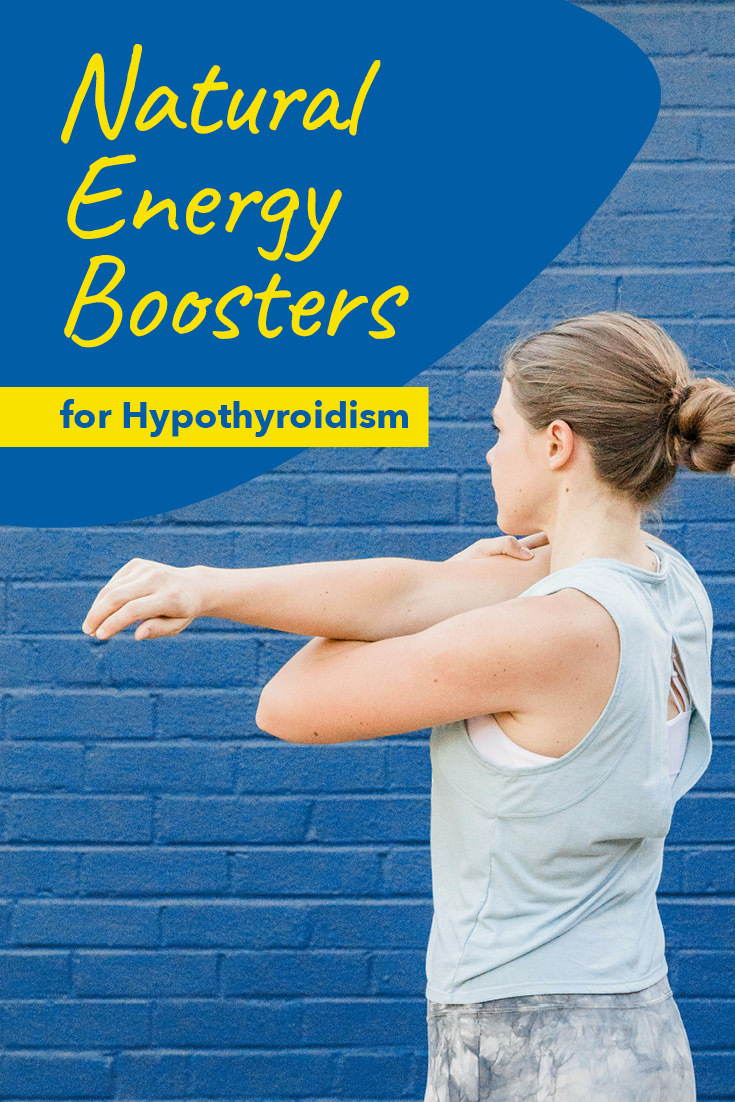Expert Advice

Acella Pharmaceuticals, LLC., is partnering with Heather Procknal, NBC-HWC-CHC, to bring greater awareness to the importance of thyroid care and education. This post was sponsored by Acella Pharmaceuticals and should not be construed as medical advice. Please talk to your doctor about your individual medical situation.
Disclaimer: The information provided is for educational purposes only and does not substitute professional medical advice. Consult a medical professional or healthcare provider before beginning any exercise, fitness, diet, or nutrition routine.
It is 3 p.m., and you hit that mid-afternoon energy slump. You feel tired and groggy and need a boost to get you through the rest of your day. If you’re like most people, you might rely on an afternoon cup of coffee or tea for energy.
But did you know that your caffeine habit might be causing you to feel even more sluggish and drained?
Yikes, talk about backfiring! That caffeinated afternoon-pick-me-up may cause you to have poor sleep, which leads to feeling tired in the morning, which then leads you to rely even more on caffeine to get you through your day. If you add sugar, then you get to look forward to the sugar crash too. Thus, the cycle continues.
So how do you fight fatigue and gain energy without sugary, caffeinated drinks?
Here are four simple and natural energy-boosting things to try instead of reaching for that afternoon latte!
Get moving outside!
Research suggests that a brisk walk or physical activity outside can help reduce fatigue by increasing blood flow and oxygen to your muscles and brain.
Exercise also will boost your body’s “feel good” hormones, called endorphins, while helping rev up your metabolism!
By being outside in natural light, you encourage your body to reduce the “sleepy-time” hormone melatonin so you can keep your energy up during the day.
Do some gentle stretches.
If going for a walk in the middle of the day isn’t realistic, then give yourself a few moments away from your desk or computer and stretch your arms, back and legs.
Stand up and reach over your head with both arms, and then fold forward at your waist if it’s comfortable for you.
Swing your arms out to your sides and twist at your waist to get the blood flowing and loosen your hip and back muscles.
Gently roll your neck forward, backward, and side to side.
Try giving yourself a hand massage by spreading your fingers and using your thumb to knead between your fingers and along the middle and sides of your hand. Take a moment and try it right now. How good does that feel?!
Drink a glass of water!
Staying properly hydrated throughout the day is a surefire way to keep your energy levels up. Aim for at least 64 ounces of water or take your weight and divide it in half to get an estimate of the number of ounces right for your body. For example: If you weigh 150 pounds, then drink at least 75 ounces of water each day.
If you decide to go for that afternoon walk, add another 8 ounces of water for every 30 minutes of exercise you do to replenish any fluids you lose during a workout.
Try sparkling water if you’re not a fan of plain water. You could even add some lemon slices, fresh mint leaves, apple slices, blueberries, cucumber, or any other fresh fruit or veggie to jazz up your water to make it more enticing!
Dehydration can be mistaken for hunger, so if you find yourself reaching for a snack or sugary treat, try drinking a cup of water first and then check in with yourself and see how you feel.
Get your B12!
Enjoy a healthy, protein-packed meal or snack with energy and mood-boosting vitamin B12.
Good sources of protein with B12 are:
- Eggs – try having a hard-boiled egg with salt and pepper or a splash of apple cider vinegar as an afternoon snack! You can find more energy-boosting snack ideas here!
- Lean meats – top your salad with some chicken or fish to ramp up the protein and B12 factor! YUM!
- Dairy or fortified non-dairy – have a glass of oat, almond, or cashew milk in the morning to help get you going for the day!
Lastly, set yourself up for a great night’s sleep.
This is the case of the chicken or the egg. To help break the cycle of poor sleep, low energy, caffeine crutch, energy crash, more caffeine, poor sleep, read more about How to Create a Blissful Sleep Oasis.
Give one or all of these tips a try the next time you hit a wall and see how much better you feel.
I hope you treat yourself to a nice afternoon walk to stretch your legs and enjoy some fresh air and natural daylight! But if you can’t, then at least give yourself a chance to do some gentle stretches and take a few invigorating deep breaths after you drink a big glass of water.
Cheers to your health and natural energy!

ML-0045
Note that DTE products, including NP Thyroid®, have not been reviewed by the FDA for safety or efficacy.
IMPORTANT RISK INFORMATION, INCLUDING BOXED WARNING & INDICATIONS
Important Risk Information
Drugs with thyroid hormone activity, alone or together with other therapeutic agents, have been used for the treatment of obesity. In euthyroid patients, doses within the range of daily hormonal requirements are ineffective for weight reduction. Larger doses may produce serious or even life-threatening manifestations of toxicity, particularly when given in association with sympathomimetic amines such as those used for their anorectic effects.
- NP Thyroid® is contraindicated in patients with uncorrected adrenal insufficiency, untreated thyrotoxicosis, and hypersensitivity to any component of the product.
- In the elderly and in patients with cardiovascular disease, NP Thyroid® should be used with greater caution than younger patients or those without cardiovascular disease.
- Use of NP Thyroid® in patients with diabetes mellitus or adrenal cortical insufficiency may worsen the intensity of their symptoms.
- The therapy of myxedema coma requires simultaneous administration of glucocorticoids.
- Concomitant use of NP Thyroid® with oral anticoagulants alters the sensitivity of oral anticoagulants. Prothrombin time should be closely monitored in thyroid-treated patients on oral anticoagulants.
- In infants, excessive doses of NP Thyroid® may produce craniosynostosis.
- Partial loss of hair may be experienced by children in the first few months of therapy but is usually transient.
- Adverse reactions associated with NP Thyroid® therapy are primarily those of hyperthyroidism due to therapeutic overdosage.
- Many drugs and some laboratory tests may alter the therapeutic response to NP Thyroid ®. In addition, thyroid hormones and thyroid status have varied effects on the pharmacokinetics and actions of other drugs. Administer at least 4 hours before or after drugs that are known to interfere with absorption. Evaluate the need for dose adjustments when regularly administering within one hour of certain foods that may affect absorption.
- NP Thyroid® should not be discontinued during pregnancy, and hypothyroidism diagnosed during pregnancy should be promptly treated.
Indications
NP Thyroid® (thyroid tablets, USP) is a prescription medicine that is used to treat a condition called hypothyroidism from any cause, except for cases of temporary hypothyroidism, which is usually associated with an inflammation of the thyroid (thyroiditis). It is meant to replace or supplement a hormone that is usually made by your thyroid gland.
NP Thyroid® is also used in the treatment and prevention of normal functioning thyroid goiters, such as thyroid nodules, Hashimoto’s thyroiditis, multinodular goiter, and in the management of thyroid cancer.
Revised
10/2023
You Are About To Leave This Website
By clicking continue, this link will take you to a website to which Alora Pharmaceuticals’ Policies & Terms of Use do not apply.
^Based on prescriptions filled, NP Thyroid® is the #1 Prescribed DTE in the United States. Source: IQVIA National Prescription Audit (NPA) data on file. Acella Pharmaceuticals, LLC.
